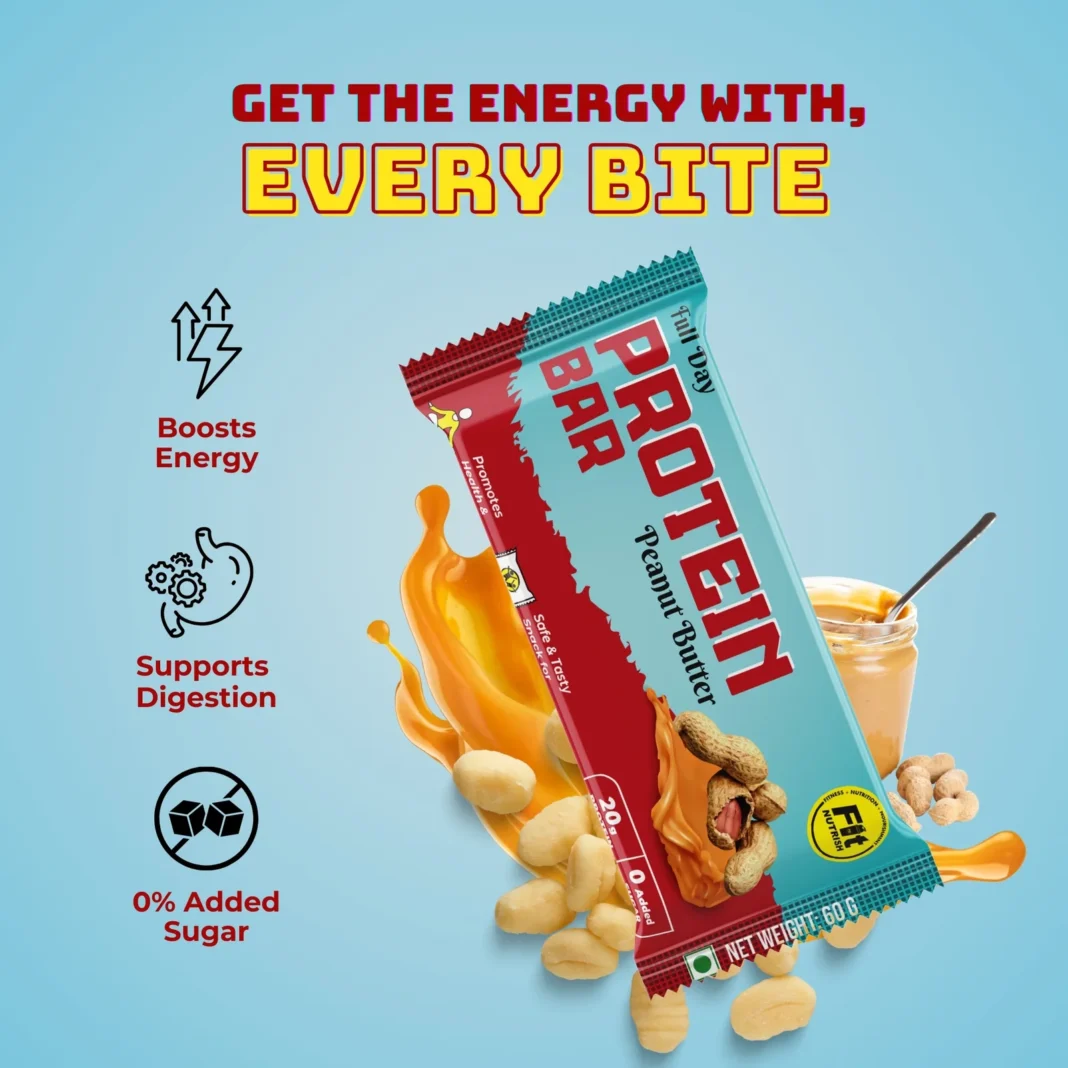When it comes to building muscle, the right nutrition plays a crucial role. Many athletes and fitness enthusiasts turn to protein bars for a quick and convenient source of protein. Among these, peanut protein bars stand out for their unique combination of flavour and nutritional benefits. In this article, we’ll explore how peanut protein bars support muscle gain, emphasizing the importance of hydration along the way.
Understanding Muscle Gain
Before diving into the benefits of peanut protein bars, let’s clarify what muscle gain entails. Muscle gain occurs when your body synthesizes more protein than it breaks down. This process requires a caloric surplus and sufficient protein intake. Nutrition, exercise, and recovery all contribute significantly to this process.
The Role of Protein in Muscle Gain
Protein serves as the building block for muscle. Consuming adequate amounts of protein helps repair and build muscle fibres after workouts. Ideally, athletes should aim for around 1.6 to 2.2 grams of protein per kilogram of body weight daily to maximize muscle gain. Peanut protein bars, rich in protein, can be a practical solution for meeting these nutritional needs.
Why Choose Peanut Protein Bars?
- High Protein Content
- Peanut protein bars contain a significant amount of protein, making them an excellent snack option for muscle gain. A single bar often provides around 10-15 grams of protein, helping you reach your daily goals. This protein content supports muscle repair and growth after workouts, ensuring you make the most of your training sessions.
- Healthy Fats
- The healthy fats in peanuts not only enhance flavour but also provide essential nutrients that support overall health. These fats help sustain energy levels during workouts and promote hormonal balance, both crucial for muscle gain. Including healthy fats in your diet fuels your workouts and supports recovery.
- Rich in Vitamins and Minerals
- Peanuts offer a variety of vitamins and minerals, such as magnesium, vitamin E, and potassium. These nutrients contribute to muscle function and recovery. Magnesium, for instance, plays a vital role in muscle contraction and relaxation, which are essential for effective workouts.
- Convenient and Portable
- Peanut protein bars are easy to carry, making them a great snack option on the go. Whether you’re heading to the gym or need a quick post-workout refuel, these bars provide a convenient solution. Their portability ensures you never miss out on essential nutrients, even when life gets busy.
Hydration and Muscle Gain
While protein is vital for muscle gain, hydration often gets overlooked. Staying properly hydrated supports overall health and enhances performance. Dehydration can hinder muscle recovery and increase the risk of injury. Drinking enough water before, during, and after workouts optimizes your performance and supports muscle gain.
When you consume a peanut protein bar, pair it with adequate hydration. This combination aids in nutrient absorption, ensuring your muscles receive the necessary building blocks for growth. Consider incorporating drinks like water or electrolyte-infused beverages alongside your snacks to boost hydration levels.
Combining Peanut Protein Bars with Your Workout Routine
To maximize muscle gain, integrate peanut protein bars into your workout routine strategically. Here are some tips on how to do this effectively:
- Pre-Workout Fuel
- Enjoy a peanut protein bar about 30-60 minutes before your workout. The protein and healthy fats will provide lasting energy and help prevent muscle breakdown during exercise.
- Post-Workout Recovery
- After your workout, consume a peanut protein bar to kickstart muscle recovery. Pair it with a source of carbohydrates, like a banana or a smoothie, to replenish glycogen stores and enhance recovery.
- Snack Between Meals
- Keep peanut protein bars handy as a snack between meals. This strategy helps you maintain your protein intake throughout the day, supporting muscle gain and preventing muscle loss.
Choosing the Right Peanut Protein Bar
Not all peanut protein bars are created equal. When selecting a bar, look for options that contain high-quality ingredients and minimal added sugars. Check the label for protein content and other nutrients to ensure you make a healthy choice.
Common Myths About Protein Bars and Muscle Gain
- “Protein Bars Are Just Candy Bars in Disguise”
- While some protein bars are loaded with sugars and unhealthy ingredients, many high-quality options provide essential nutrients. Peanut protein bars can be a healthy choice when made with whole ingredients.
- “You Don’t Need Protein Bars if You Eat Enough Protein from Whole Foods”
- While whole foods are essential, protein bars offer convenience. They provide an easy way to ensure you meet your protein needs, especially when you’re on the go.
- “More Protein Equals More Muscle Gain”
- Consuming excessive protein won’t necessarily lead to more muscle gain. Focus on balancing your macronutrients, including carbohydrates and fats, for optimal results.
Conclusion
Incorporating peanut protein bars into your diet can significantly support muscle gain. Their high protein content, healthy fats, and convenient nature make them an ideal snack for athletes and fitness enthusiasts alike. Remember to stay hydrated, as proper hydration enhances performance and recovery. By combining peanut protein bars with a well-structured workout routine and adequate hydration, you’ll set yourself up for success on your muscle gain journey.


